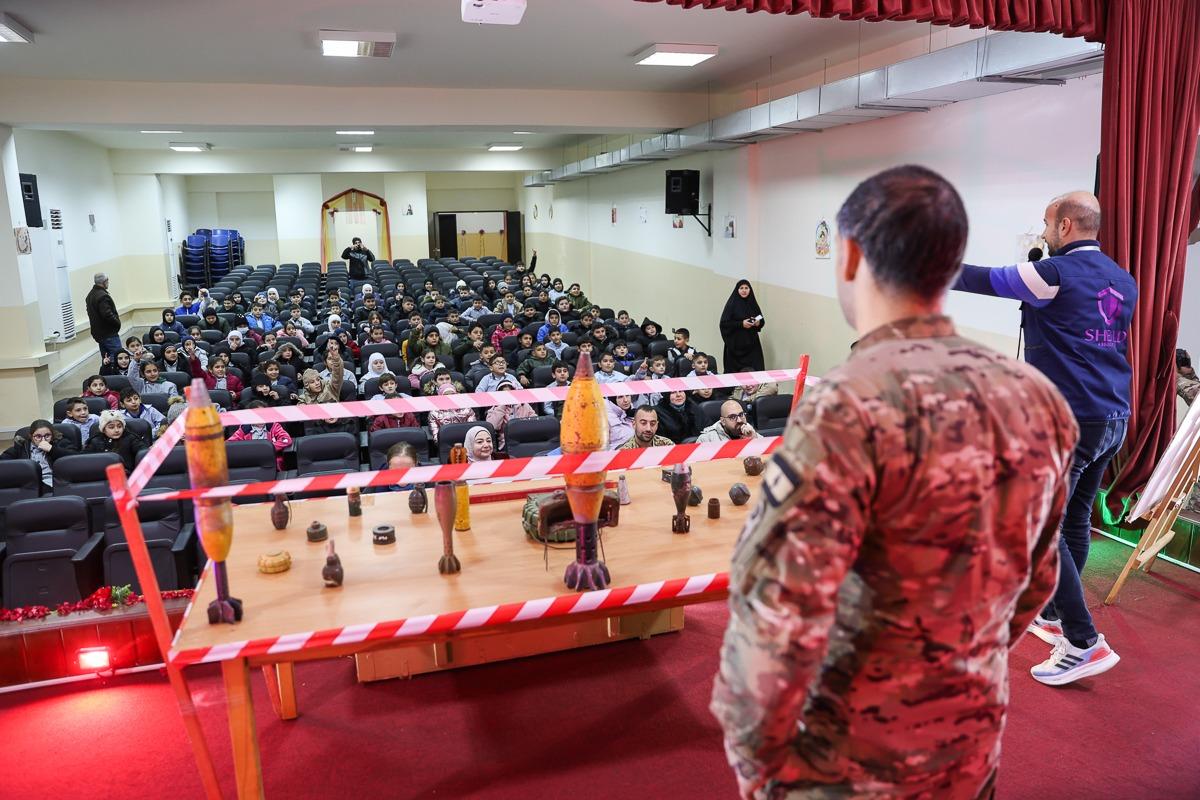In the mountainous region in the eastern part of UNIFIL area of operations, which falls under the Indian Battalion (INDBATT), a veterinary doctor makes daily visits to several villages. He starts at eight in the morning until the end of each working day.
The vet provides assistance to farmers and shepherds on their farms and in the grazing fields along the Blue Line, and extends the help to other areas when requested, in a unique initiative that INDBATT has been providing for many years. This year alone, the vet has treated over 15,000 animals and vaccinated an additional 622.
He is one of the very few veterinary doctors in South Lebanon serving up to 13 villages. Lt. Col. Mohad Adil Yakub has been with the Indian Battalion since June 2012, and works for the Lebanese livestock keepers.
Mr. Yakub explains: "There are two private vets in southern Lebanon, however, the services are sometimes beyond the reach of most farmers, who prefer to consult the UNIFIL expert." "Within UNIFIL, there is only one vet from Indbatt, who is mandated to treat animals belonging to the local population. Other contingents with vets are only mandated to treat their own animals."
On 13 May, this year, he started his day with a visit to the family of Mr. Iftikar Atieh where he treated animals, including goats and the family's only cow.
On arrival, he was warmly welcomed by the family members, who had been eagerly awaiting his visit. He chatted up with his hosts before being taken to the shade to examine the goats.
After careful examination of his first 'patients', he diagnosed one of the goats as suffering from congestion in the lungs and a bloody discharge. Patiently, he explained to the shepherd the diagnosis and the prescription for two to three days of medication. It included an antibiotic and a cough syrup.
Mr. Iftikar Atieh says: "The Indian vet is very responsive. Any time we call him, he responds very fast. He has been very helpful in treating our animals which are our main source of livelihood."
His second visit was within the same homestead to see a sick cow. He found the cow to be suffering from vitamin deficiency. He prescribed antibiotics and some medicine for a skin infection.
The vet does routine visits in the villages according to a prepared schedule. However, whenever there is an emergency he readily changes this to accommodate requests from farmers.
The main problems that he encounters are respiratory illnesses and skin diseases and mastitis. "The animals also frequently suffer from fractures due to the rough terrain," he says. The respiratory problems are mainly due to poor ventilation where the animals are kept.
Mr. Ahmed Atieh has recently returned to the village from Kwa Shouba, where he had been serving with the Lebanese Armed Forces. Upon his return, he has started farming and he is the proud owner of a cow he really treasures.
"I have learnt a lot from the vet. I have learnt how to read signs from the cow when it is unwell or uncomfortable and I am even able to tell its different moods. If you take care of her, she takes care of you, she gives you milk and she gives you calves," he adds.
There are around 200 beneficiaries of the Indian vet's services. He visits, on average, between five to 10 farmers in one day.
At an open field, he was scheduled to meet with Mr. Ismail Kamel Nasser, the proud owner of about 500 goats. Mr Kamel, a shepherd since his childhood, knows each goat individually and has a special relationship with the vet.
The vet found that one of the goats was suffering from partial blindness. He recommended that Mr. Kamel takes the animal to UNIFIL.
Back at his office, he has a room, in which he carries out surgical operations on the animals. He also does emergency operations in the villages.






